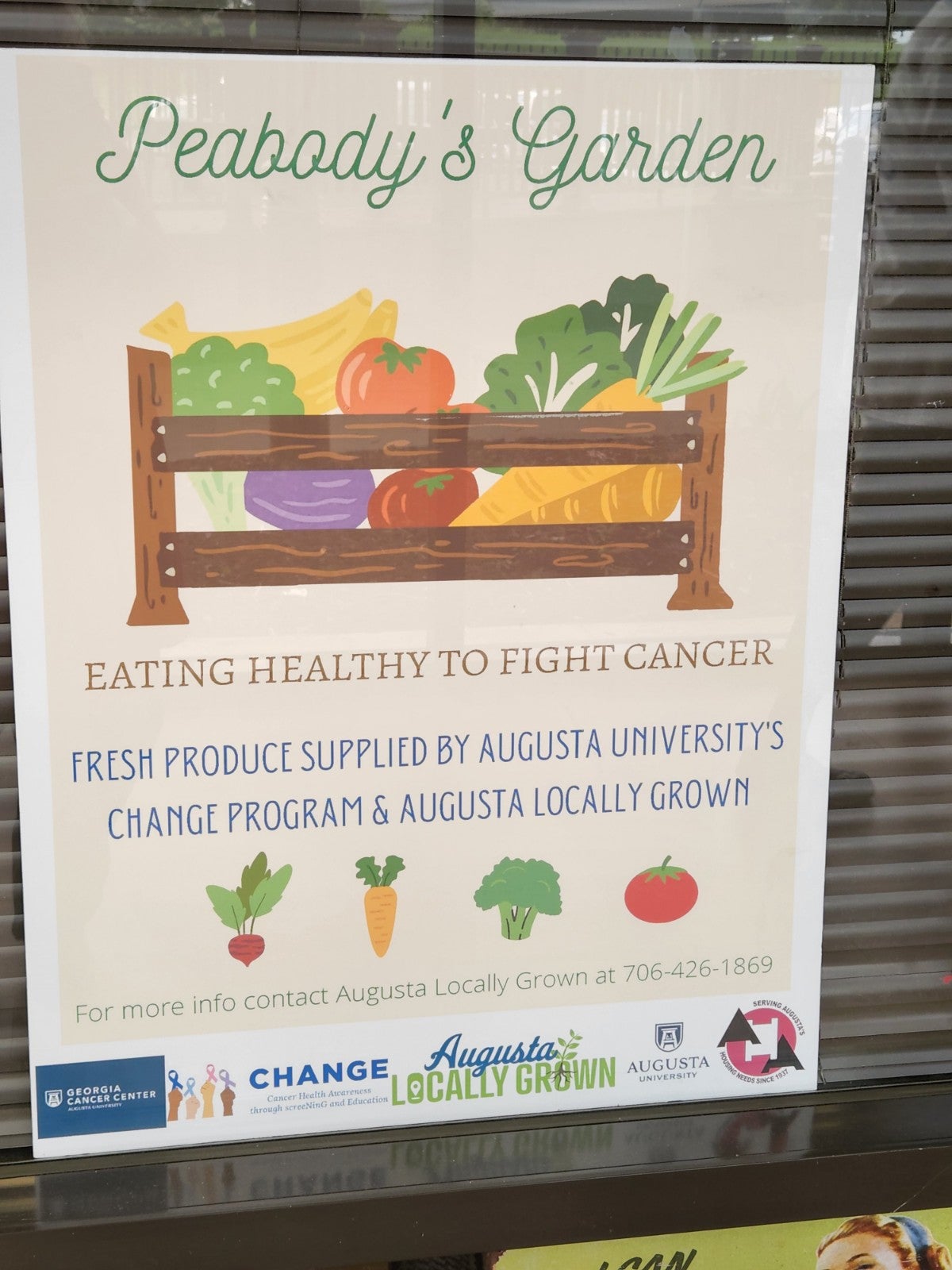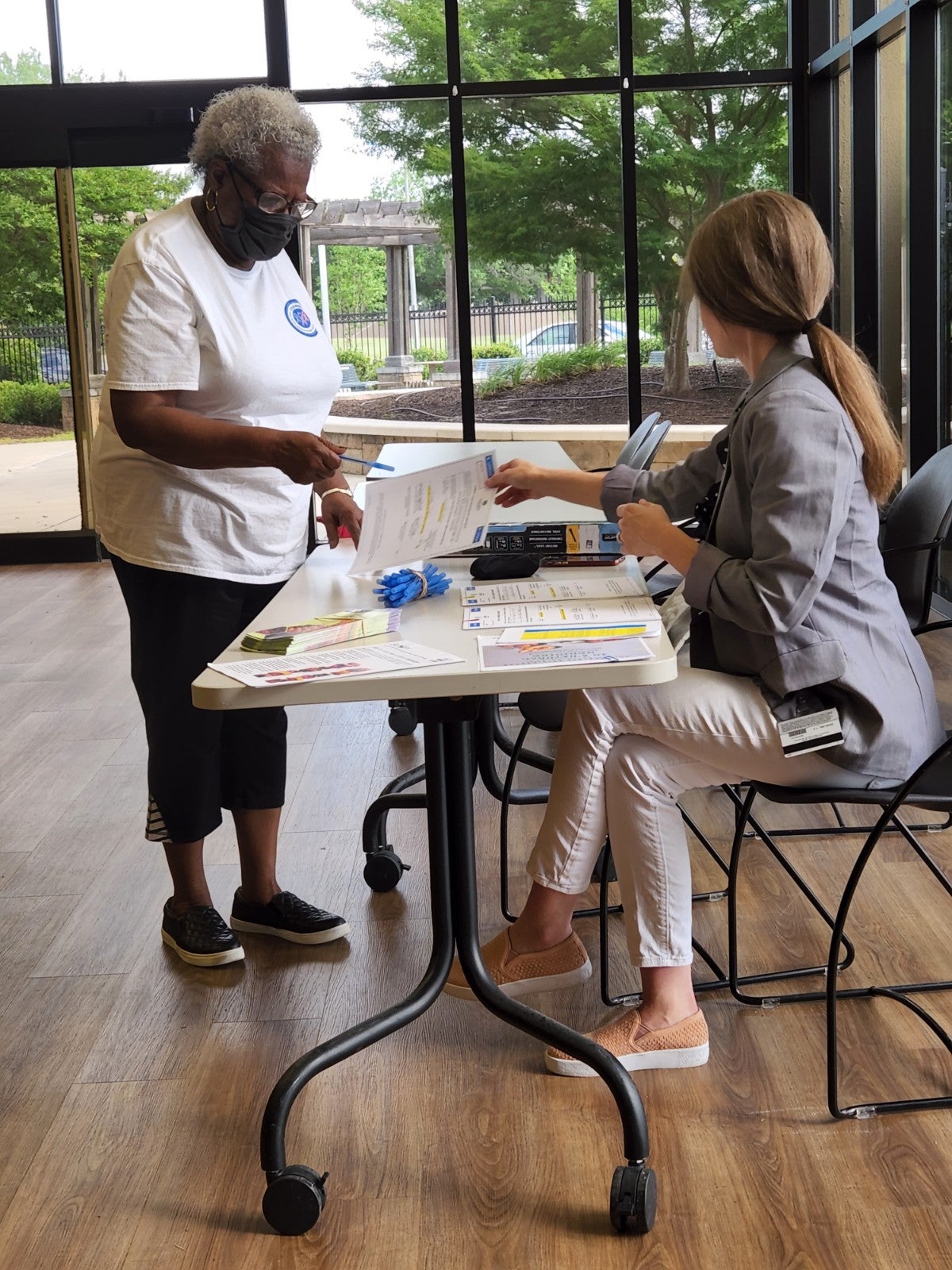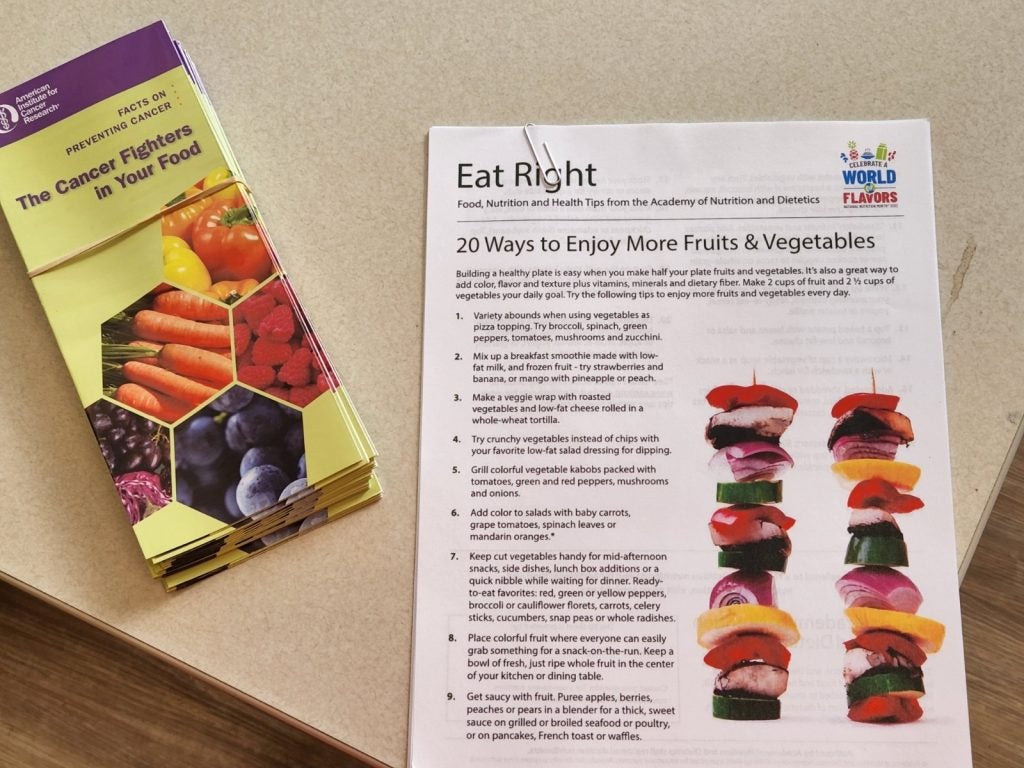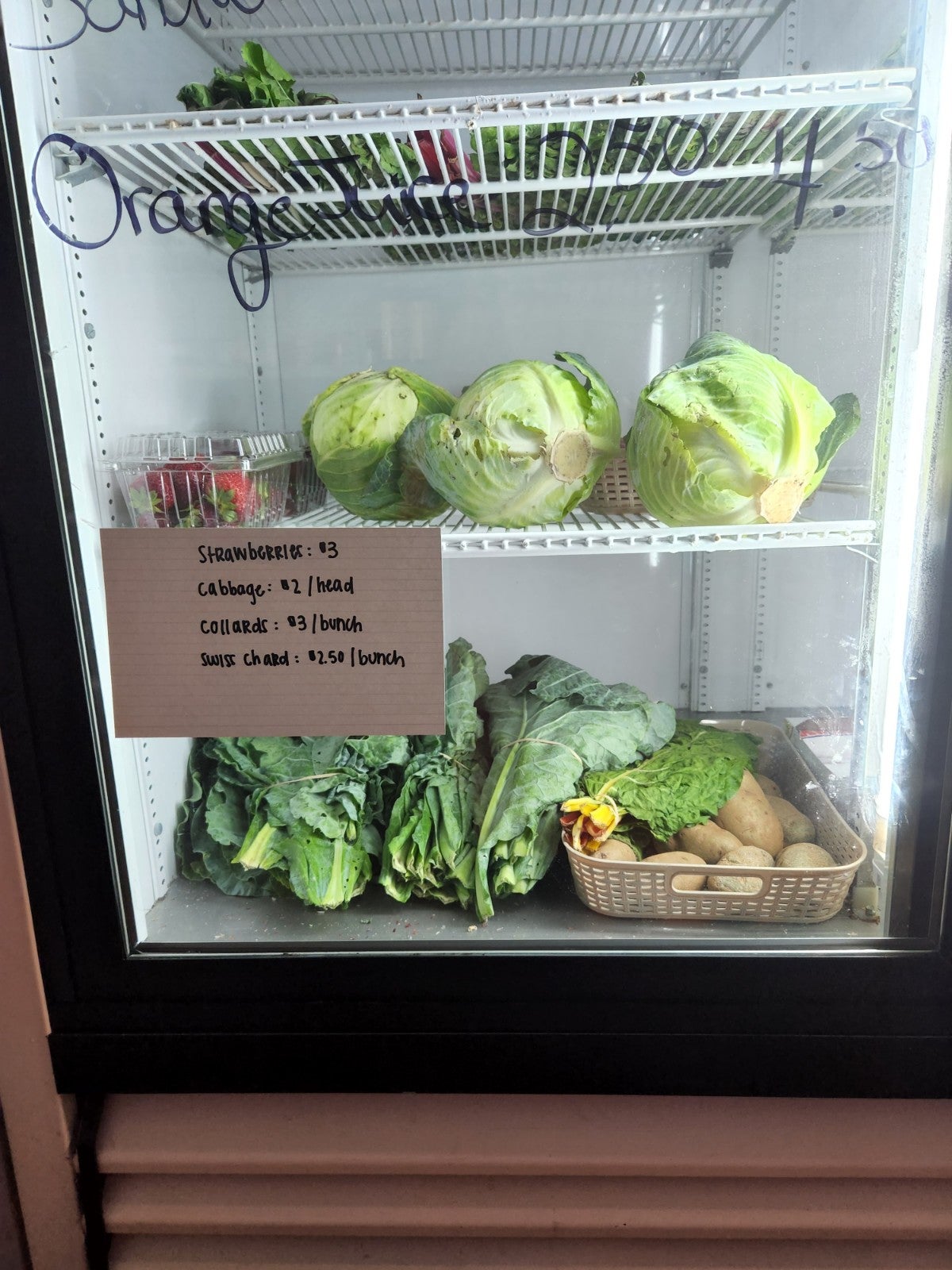Dorothy Dozier likes fresh fruits and vegetables. However, as a resident of Peabody apartments her access to fresh produce was limited.
The apartment complex on Walton Way is in one of Augusta’s food deserts. The U.S. Department of Agriculture defines a food desert as areas where people without a vehicle live one-half to one mile from the nearest grocery store.
“A lot of people around here is not able to drive. A lot of people is not able to even catch the bus to go,” said Dozier.
MORE: VA Whole Health program is a concierge service for vets
That has changed with a partnership with the Augusta Housing Authority, Augusta Locally Grown and the Georgia Cancer Center at Augusta University.
Funded by a grant from the American Cancer Society and Pfizer, the Cancer Health Awareness through Screening and Education, or CHANGE, is trying to reduce disparities in cancer rates and death. The University of Georgia Extension Service said people living in a food desert have higher rates of obesity, leading to an increased risk of Chronic illnesses like cancer and diabetes.
“For the residents in this community to get to a grocery store, they have to get a ride to Walmart in North Augusta. A whole other state,” said Dr. Marlo Vernon with the Georgia Cancer Center. “As part of this project I wanted to create environmental changes that supported people’s healthy behaviors.”
MORE: American Heart Association shares seven habits to prevent stroke
She said they surveyed residents about what they wanted to support healthier behaviors. The answer was a resounding request for fresh produce.

There is a small market on the first floor of the complex, but it didn’t include fresh produce. That is where Augusta Locally Grown stepped up.
“We supply from your neighborhood farmer; they are within 30 minutes of right where we’re standing. Some are even closer than that. Some are their backyard gardens and they’re selling surplus. Some have a few acres and they’re selling. But all are from within this community,” said Rebecca van Loenen, Augusta Locally Grown’s executive director.

There is another component to this program. As part of the grant, it is enrolling residents for education sessions on breast, prostate and colorectal cancer and the importance of early detection.
“If we can get people into cancer screening early, we can get diagnoses early, and they’re easier to treat at earlier stages. African Americans overall are at much higher risk of being diagnosed with cancer at later stages, which then puts them at risk of more expensive and harder to treat cancer types,” Vernon said, adding, “So we’re doing primary prevention where we try to get in before a disease happens and secondary prevention, where we catch it in the early stages and we stop it from getting to be a really bad type of cancer.”
Peabody Apartments is the first of what Vernon hopes will ultimately be five similar projects at other complexes. In order to grow, she knows they will need Augusta Locally Grown to get more produce from more people.

“If you have too much in your garden, and you are interested in selling it, absolutely contact them, you know, they make it so easy to be a part of it,” she said. “We need community support to sustain this project as well. You know, eventually our funding is going to go away, but the hope is that the changes we make will continue on after the funding goes away. And that is really how you change your community to be health promoting and cancer preventing.”
Dozier would like to see everyone with small gardens to large farms sign up to share the bounty from their fields.
“Let them know how important it is for the seniors. Seniors can’t get around and get out like others, so you know volunteer and help us out. We will love it,” she said Information on how to sign up to participate and contribute fresh produce to this program is at: https://www.augustalocallygrown.org/
Dana Lynn McIntyre is a general assignment reporter for The Augusta Press. Reach her at dana@theaugustapress.com











